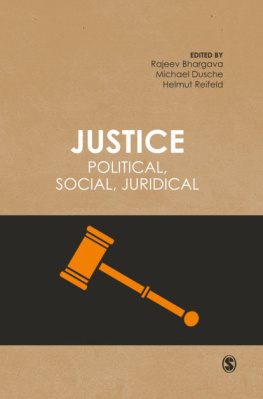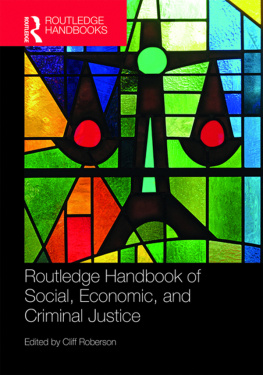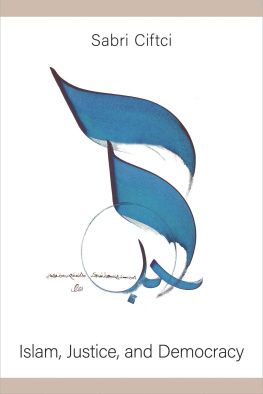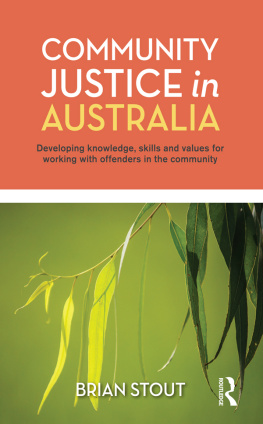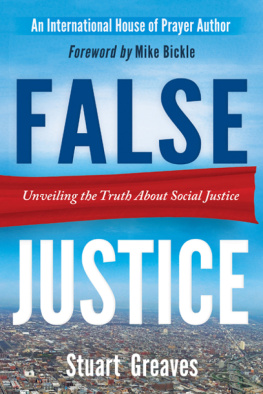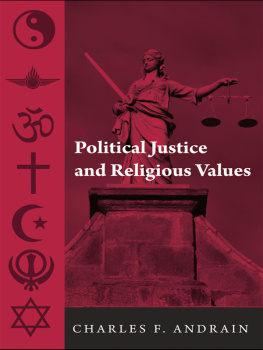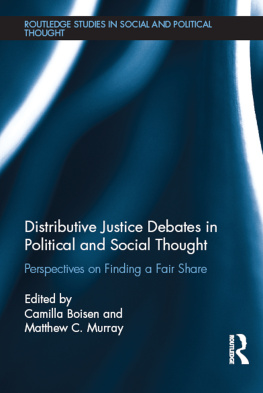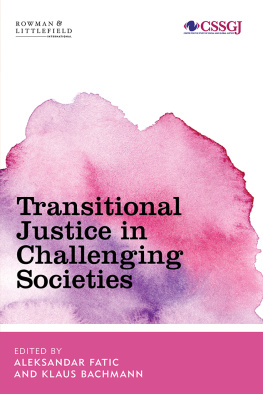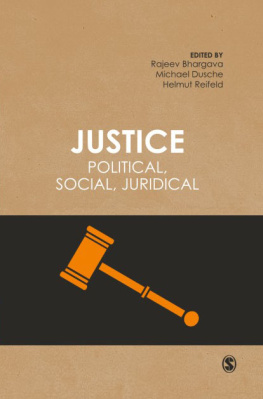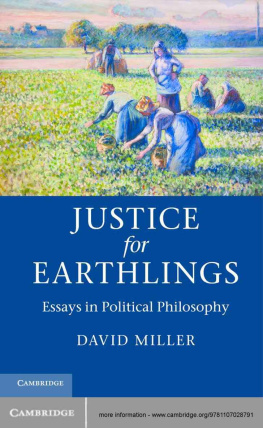JUSTICE
POLITICAL,
SOCIAL, JURIDICAL
JUSTICE
POLITICAL ,
SOCIAL, JURIDICAL
Edited by
RAJEEV BHARGAVA
MICHAEL DUSCHE
HELMUT REIFELD
Copyright Konrad Adenauer Stiftung, 2008
All rights reserved. No part of this book may be reproduced or utilised in any form or by any means, electronic or mechanical, including photocopying, recording or by any information storage or retrieval system, without permission in writing from the publisher.
First published in 2008 by
SAGE Publications India Pvt Ltd
B1/I-1 Mohan Cooperative Industrial Area
Mathura Road, New Delhi 110 044, India
www.sagepub.in
SAGE Publications Inc
2455 Teller Road
Thousand Oaks, California 91320, USA
SAGE Publications Ltd
1 Olivers Yard, 55 City Road
London EC1Y 1SP, United Kingdom
SAGE Publications Asia-Pacific Pte Ltd
3 Church Street
#10-04 Samsung Hub
Singapore 049483
Published by Vivek Mehra for SAGE Publications India Pvt Ltd, typeset in 12/14 pt Aldine401 BT by Star Compugraphics Private Limited, Delhi and printed at Chaman Enterprises, New Delhi.
Library of Congress Cataloging-in-Publication Data
Justice: political, social, juridical/edited by Rajeev Bhargava, Michael Dusche, Helmut Reifeld.
p. cm.
Includes bibliographical references and index.
1. Social justiceIndia. 2. CasteIndia. 3. Social justice in literature.
I. Bhargava, Rajeev. II. Dusche, Michael. III. Reifeld, Helmut.
HN683.5 . J875303.3'720954dc2220082008006730
ISBN: 978-93-5280-333-0 (e-Pub)
The SAGE Team: Sugata Ghosh, Vikas Jain, Anju Saxena and Trinankur Banerjee
Thank you for choosing a SAGE product!
If you have any comment, observation or feedback,
I would like to personally hear from you.
Please write to me at
Vivek Mehra, Managing Director and CEO, SAGE India.
Bulk Sales
SAGE India offers special discounts
for purchase of books in bulk.
We also make available special imprints
and excerpts from our books on demand.
For orders and enquiries, write to us at
Marketing Department
SAGE Publications India Pvt Ltd
B1/I-1, Mohan Cooperative Industrial Area
Mathura Road, Post Bag 7
New Delhi 110044, India
E-mail us at
Get to know more about SAGE
Be invited to SAGE events, get on our mailing list.
Write today to
This book is also available as an e-book.

Contents
P ART I. R EFLECTIONS OF J USTICE IN R ELIGIOUS
T RADITIONS AND B EYOND
P ART II. R EFLECTIONS OF J USTICE IN
L ITERARY T RADITIONS
J ustice is a core value not only in the fields of theology, law and political philosophy, but also in politics, social life and economics. It is a value that generates other values. For many different religions and cultures, it has been a guiding principle in the realm of philosophical thinking as well as in many areas of public life. At all times, issues, points of controversy and innovative ideas has been debated according to the respective understanding of justice. What is it that makes these different perceptions of justice comparable? Is there an interest in learning about the perception of others? And what can it help us to learn?
The stage of globalisation we have reached today insists in addition on the demand for finding new answers to these old questions. Inter-cultural dialogue, especially in the field of values, has become an imperative. This is true in particular for a cardinal virtue such as justice which is, no doubt, not only respected and appreciated among Christians in Western Europe but among human beings everywhere regardless of religion, race, gender, nationality or other identities. The inter-cultural relevance of this dialogue is not limited to particular aspects or depending on certain solutions. It is an ongoing dispute for which in a globalised world, there is no alternative. The aim here is not to level down differences but to understand plurality.
The essays in this book emanate from a conference with the same title, held in Jaisalmer, India, in November 2003. This conference was initiated and organised by the Konrad Adenauer Stiftung (Foundation), Germany, as part of a worldwide series of conferences, workshops or seminars embedded in a programme called: Dialogue on values. Although there is already, on the part of the Konrad Adenauer Stiftung, a long tradition of dialogue programmes in general, the topic and different concepts of justice as a core value for all fields of public life in South Asia as well as in Europe have, on our part, not been addressed before. The intention was neither to enter deeply into theological or even dogmatic disputes nor to use this kind of discussions about cultural differences as an explanation for political problems. The present book not only provides respective information mainly about South Asia, but rather hopes to contribute to the promotion of a worldwide process of dialogue. The articles were written with the idea to promote and carry forward this spirit of dialogue.
It should be mentioned that all opinions and judgements expressed in the following chapters are those of the individual authors. Inputs, however, have come from several sides in the process of preparation, implementation as well as of publication. In the first place, the Konrad Adenauer Stiftung is grateful to Rajeev Bhargava who encouraged and supported the original idea of this conference from the first discussion to the day of publication. Without his excellent contacts this outstanding group of scholars could not have been formed. He constantly kept in contact with all of them, made numerous suggestions for revision and never lost confidence in the importance of this project. Equally, we are grateful to Michael Dusche who, in the course of all these years, kept a vigilant eye on each and every revision and finally wrote a comprehensive and enlightening introduction. Without the help, enthusiasm and friendship of both, this book would never have seen the light of the day. Sincere words of thanks also have to be given to all the contributors, who not only presented a paper and participated in the discussion, but who made the effort to revise their paper in the light of these discussions.
Further on, our gratitude goes to the editorial team of Sage who brought out this book with an imperturbable commitment despite the long time of preparation. Like in many similar projects before, neither the implementation of the conference nor the final publication would have been realised without the constant vigilance and manifold efforts of Manu and Mohita.
February 2007
I n the present volume, we look at conceptions of justice from various religious and cultural traditions (Hinduism, Islam, Christianity, cosmopolitanism, tribal cultures), and different methodological perspectives (history, theology, philosophy, political theory, sociology, literary criticism and so on). A unifying point in the diverse contributions assembled here is their reflection of universalism and their reference to the basic values of the Constitution of India. The title itself is a variation of the preamble where it is stated, We, the people of India, having solemnly resolved to constitute India into a sovereign socialist secular democratic republic and to secure to all its citizens: justice, social, economic, and political...

